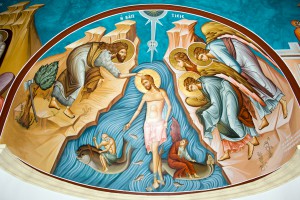
Today we have Part 2 of Bob’s reflections on the Gospel of Thomas:
One of my great frustrations with most sermons, writings, and Christian texts is how often they refer to the Kingdom without ever defining what that term means. This is especially frustrating because this place or state of being is a fundamental doctrine of the Christian faith. We are told nearly ad nauseum that the Kingdom is coming, what we should do to get prepared for it and what will happen to us if we don’t, but specificity about this marvelous gift is hard to find. Standard Christian doctrine about the Kingdom is eschatological—meaning that the Kingdom is in the future, the time when “Jesus will come again.” Many a would-be prophet, of course, has been made a fool predicting exactly when the magic date will be.
The Gospel of Thomas is subversive and radical because it eschews eschatology. It says that the Kingdom is here, now, not in the future. That is, if we learn what Jesus has learned, if we practice what Jesus has practiced, then we can participate in the state of consciousness Jesus calls the Kingdom. Thomas is subversive and radical in a second way as well—his is a “seek and find” theology that is quite different from the “gift” ideology of the orthodox doctrine of grace. Thomas does not deny that the Kingdom is a gift (because its possibility is given to all of us unearned), but he believes we must do our spiritual push-ups if we wish to experience it. Thomas’ Kingdom is not a place or thing, but is instead like a person in action: “The Kingdom of the Father is like a woman who took a little leaven and concealed it in dough. She made large loaves of bread” (saying 96). In sayings 97 and 98 the central simile of the Kingdom being like a person in action continues: “The Kingdom of the Father is like a woman who…” and “The Kingdom of the Father is like a man who….”
The writer of Thomas contends that the heart of our seeking must be personal knowledge and transformation. He believes that if we truly know ourselves we will realize that the Kingdom has been within us all the time. Thomas’s Jesus sounds a lot like Socrates—above all, know thyself. He also sounds a lot like Socrates in that while he knows others can come to such radical self-knowledge, few will.
In saying 24 Jesus says, “He who has ears let him hear. There is light within a man of light, and he lights up all of the world. If he is not alight there is darkness.” The continual deafness of Jesus’ disciples in Thomas indicates a pessimism that while many will set off on the path to enlightenment, few will succeed. Few have “ears to hear.” Furthermore, Thomas warns that “The seeker should not stop until he finds. When he does find, he will be disturbed. After having been disturbed, he will be astonished. Then he will reign over everything” (saying 2). The path is not only difficult because we are asked to struggle to comprehend at a new level of consciousness, but in the process we will be greatly disturbed because we will have to give up much of our current world, including our worldview.
But if someone succeeds, they will discover and thus unveil a light from within that will illuminate the world. In Thomas’ words, “the light is inside and outside,” and as we move from bewilderment to astonishing self-discovery, tremendous power to influence and transform reality will be born in us.
So what is this path? To find out, tune in tomorrow.










